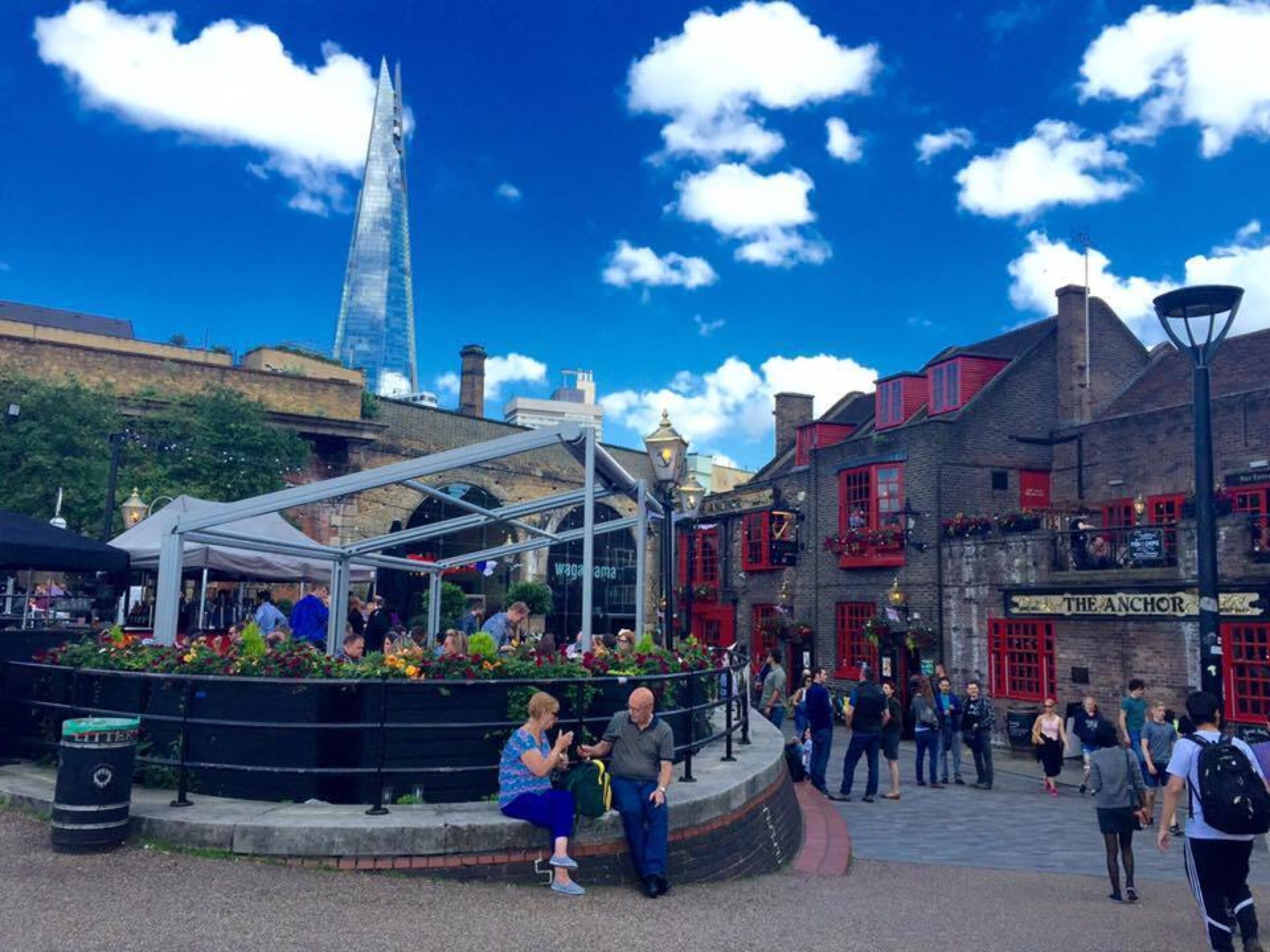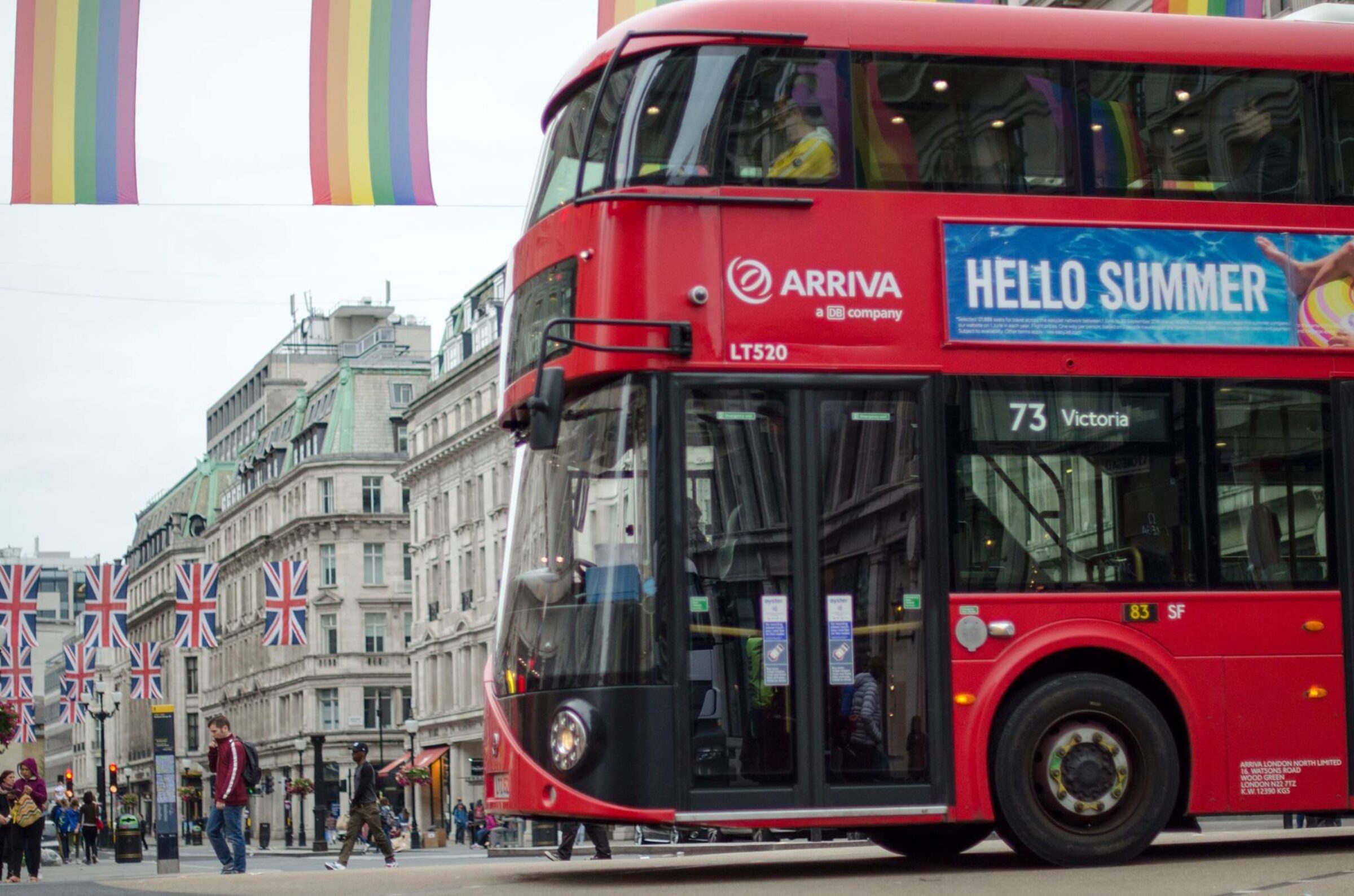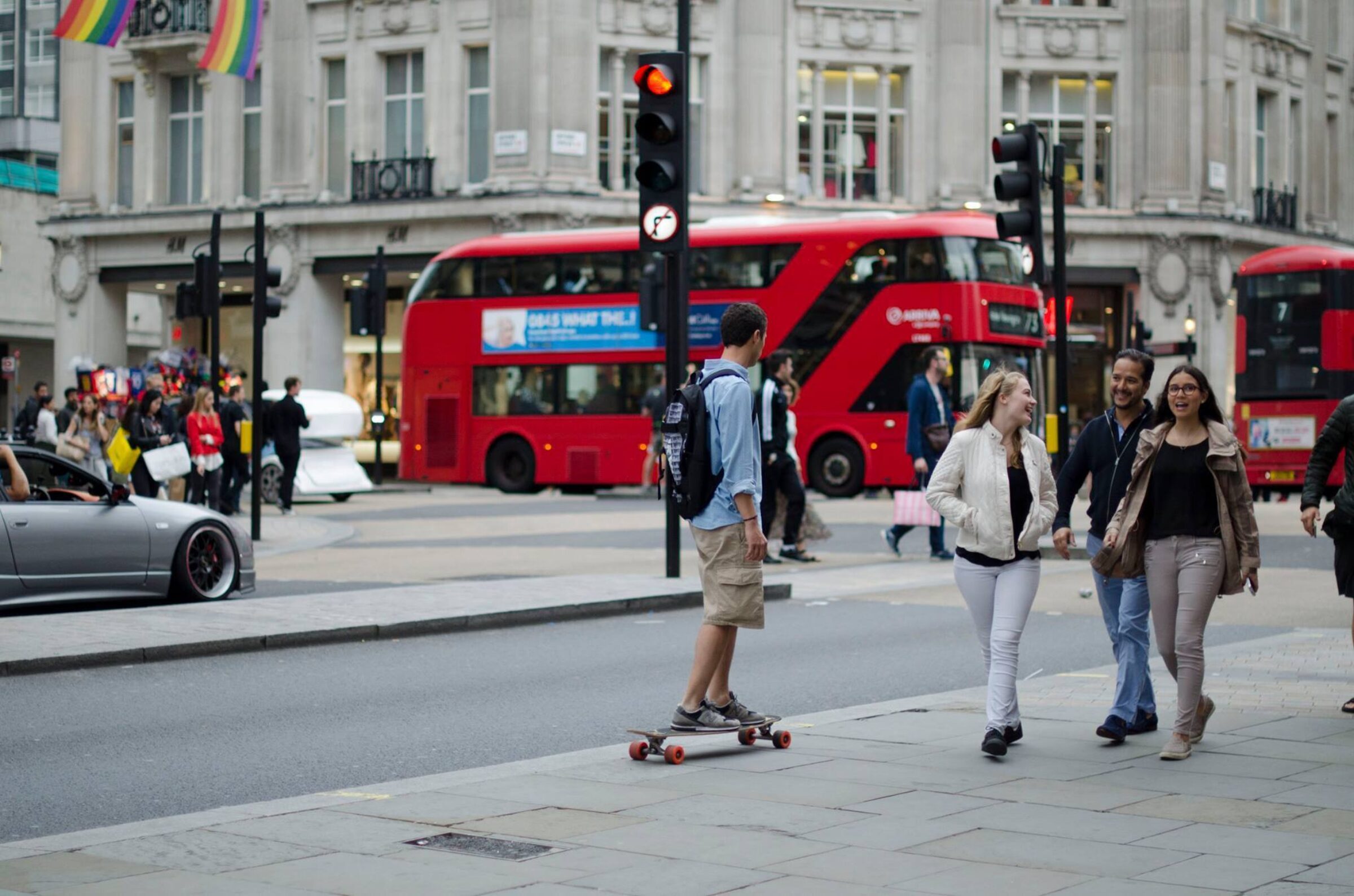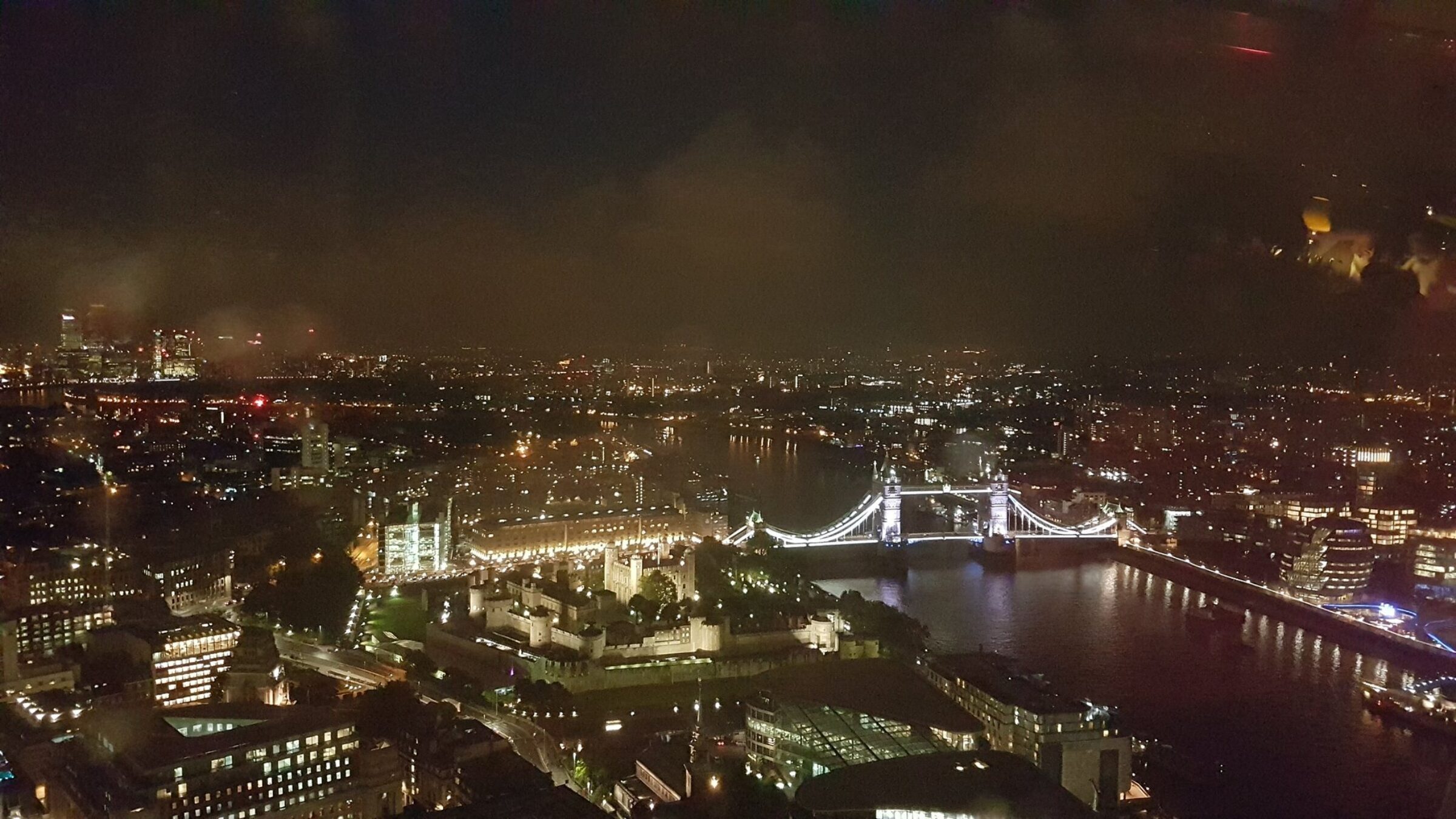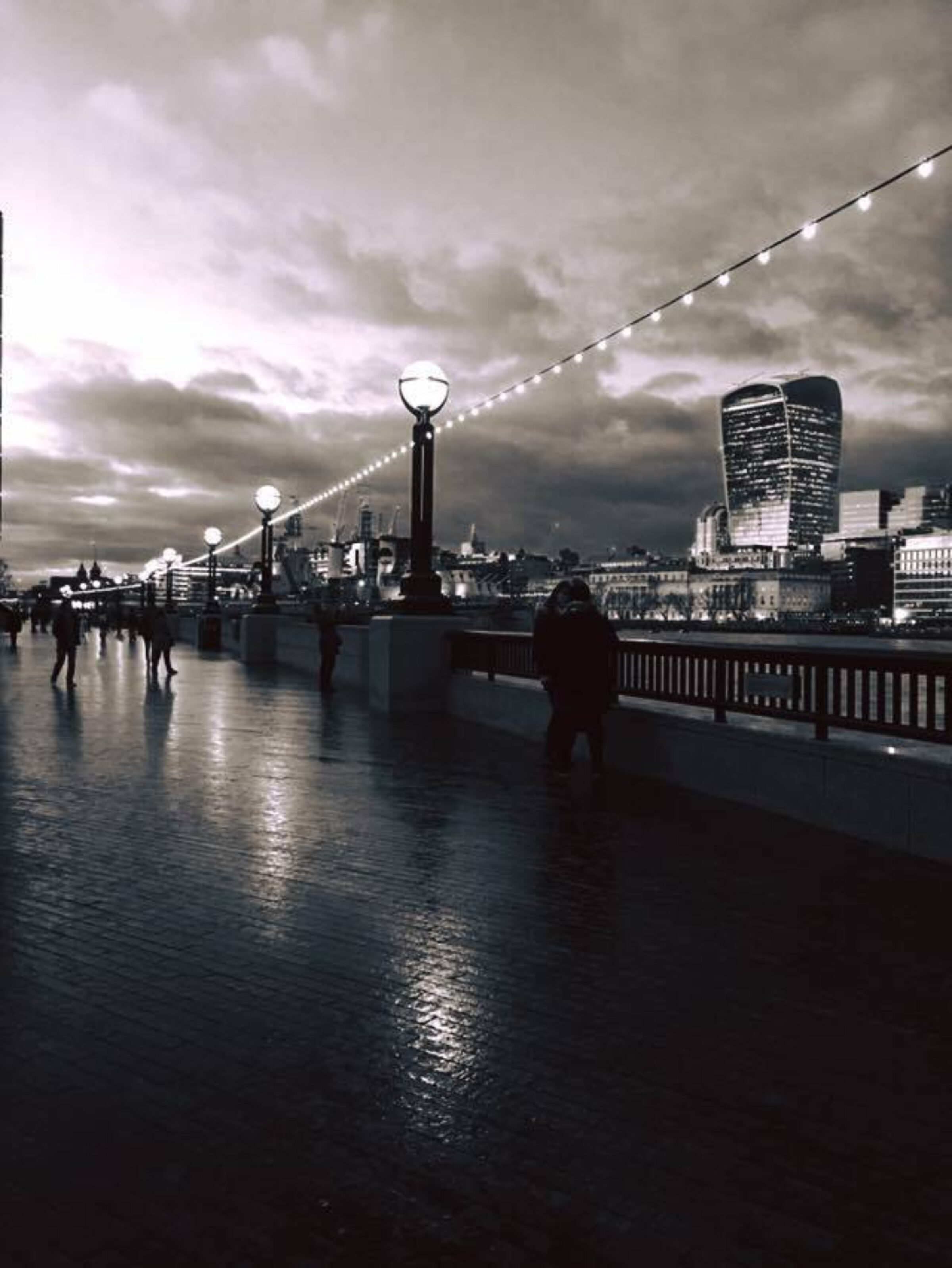Weather Wise

By Rachel Rowland (ABC School’s Academic Coordinator)
The Summer season is now in full swing and many people are enjoying the unusually hot weather in the U.K. The British, in particular, are very fond of discussing the weather. How many conversations have you overheard this week about the current climate? Probably quite a few! There are many ways of talking about the weather in English and we actually have more than one word or phrase to describe one type of weather. For example, we can say that a sunny day is ‘a pleasant day’ or ‘a fine day.’ It is very useful for English language students to understand as many weather expressions as possible in order to be able to converse with native speakers of English about our favourite topic of conversation. Let’s look at some more useful words and expressions.
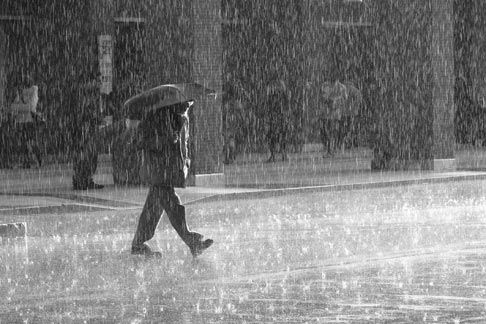 Rain
As rain is the most common type of weather experienced in the U.K, we have a wide variety of expressions to talk about it!
Drizzle – This type of rain is very light and falls to the ground in very fine drops. This word is also used as a verb to describe the action of lightly pouring something over food. For example, you may drizzle olive oil over your salad.
Shower – A rain shower is a brief and light fall of rain. A shower usually lasts for a few minutes. The expression ‘to take a shower’ is very similar because when you take a shower, you are having a short wash underneath a spray of water.
Torrential rain / downpour/ pouring with rain – This type of rain is considered to be especially heavy. It can be defined as rain that accumulates at a rate of 3 tenths of an inch (0.3 inches ) or more per hour. It is a sudden, violent rain and you should not be outside during this type of rainfall.
Raining cats and dogs – This idiom means that it is raining very heavily, not that animals are falling from the sky! The literal explanation of this expression comes from the fact that during heavy rain falls in 17th century England, some city streets became flooded, and the water would carry dead cats and dogs into the streets. People didn’t keep animals in the house back then and so dogs and cats would live on the roofs of houses. When the rains came, the animals would slip off the roofs because they were made from the very slippery material. The animals would then fall into the streets below and be swept along in the rain water. Nowadays, we use this expression when it is raining very hard.
Rain
As rain is the most common type of weather experienced in the U.K, we have a wide variety of expressions to talk about it!
Drizzle – This type of rain is very light and falls to the ground in very fine drops. This word is also used as a verb to describe the action of lightly pouring something over food. For example, you may drizzle olive oil over your salad.
Shower – A rain shower is a brief and light fall of rain. A shower usually lasts for a few minutes. The expression ‘to take a shower’ is very similar because when you take a shower, you are having a short wash underneath a spray of water.
Torrential rain / downpour/ pouring with rain – This type of rain is considered to be especially heavy. It can be defined as rain that accumulates at a rate of 3 tenths of an inch (0.3 inches ) or more per hour. It is a sudden, violent rain and you should not be outside during this type of rainfall.
Raining cats and dogs – This idiom means that it is raining very heavily, not that animals are falling from the sky! The literal explanation of this expression comes from the fact that during heavy rain falls in 17th century England, some city streets became flooded, and the water would carry dead cats and dogs into the streets. People didn’t keep animals in the house back then and so dogs and cats would live on the roofs of houses. When the rains came, the animals would slip off the roofs because they were made from the very slippery material. The animals would then fall into the streets below and be swept along in the rain water. Nowadays, we use this expression when it is raining very hard.
 Wind
We often have windy weather during the autumn and winter months. Here are some expressions to describe the different types of the wind that we have in the U.K.
Biting wind – Biting wind is extremely cold wind and is so freezing that you feel uncomfortable and it can even cause physical pain.
A light breeze – A light breeze is completely the opposite to a biting wind. It is a very light wind of about 5 – 7 miles per hour (or 7-11 kilometres per hour.) A light breeze is the kind of the wind that you might feel on a sunny day by the sea. It is a very pleasant type of weather and is welcomed during a very hot day!
Gale- force winds – This type of wind is very strong and travels from 45 to 90 kilometres per hour. We sometimes have this type of weather in winter. Gale-force wind is very strong and often causes damage to buildings and trees. It is better to stay inside when the wind is this strong.
Wind
We often have windy weather during the autumn and winter months. Here are some expressions to describe the different types of the wind that we have in the U.K.
Biting wind – Biting wind is extremely cold wind and is so freezing that you feel uncomfortable and it can even cause physical pain.
A light breeze – A light breeze is completely the opposite to a biting wind. It is a very light wind of about 5 – 7 miles per hour (or 7-11 kilometres per hour.) A light breeze is the kind of the wind that you might feel on a sunny day by the sea. It is a very pleasant type of weather and is welcomed during a very hot day!
Gale- force winds – This type of wind is very strong and travels from 45 to 90 kilometres per hour. We sometimes have this type of weather in winter. Gale-force wind is very strong and often causes damage to buildings and trees. It is better to stay inside when the wind is this strong.
 Cold
Although we are currently experiencing beautiful weather, a cold climate is more common in the U.K. We have many words and expressions to describe the cold.
Bitterly cold – This type of cold is extremely unpleasant. This is when the temperature struggles to rise above freezing. You need to wear many layers of clothing during this type of cold weather.
A cold spell / cold snap – This is a period of cold weather which is usually short.
Freezing cold – When it is freezing outside, the temperatures are so low that things become congealed into ice by the cold. You may have to wash your car windscreen with warm water to clean the ice away before driving!
Cold
Although we are currently experiencing beautiful weather, a cold climate is more common in the U.K. We have many words and expressions to describe the cold.
Bitterly cold – This type of cold is extremely unpleasant. This is when the temperature struggles to rise above freezing. You need to wear many layers of clothing during this type of cold weather.
A cold spell / cold snap – This is a period of cold weather which is usually short.
Freezing cold – When it is freezing outside, the temperatures are so low that things become congealed into ice by the cold. You may have to wash your car windscreen with warm water to clean the ice away before driving!
 Hot
This is the kind of weather that we are experiencing at the moment. Many people love this weather in the U.K because we very rarely have such hot temperatures. Here are a few expressions with the word ‘hot.’
Boiling hot/ roasting/ scorching – People use these expressions to say that they feel very hot because the temperature outside is very uncomfortable, maybe above 30 degrees Celsius. You might hear people complaining ‘I’m boiling!’ or ‘I’m roasting!’
It’s sweltering – This is another way of saying that it is uncomfortably hot. You may feel very sticky and your clothes may stick to your skin.
Hot and humid/ muggy – Although hot, there is a high level of water vapour in the atmosphere. The weather is so hot and steamy like being in a really hot shower. In this type of weather, you sweat a lot and may have to take three cold showers per day! In some places, such as subtropical Hong Kong, the weather is like this during the rainy season. We also experience this type of weather in the U.K during the Summer.
As you can see, there are so many words and expressions used to talk about the weather. I have just mentioned several of these but you should try to learn as many as possible while you are living in the U.K. After all, you never know what weather you are going to get as our climate is so wonderfully unpredictable! Enjoy the sunshine!
Hot
This is the kind of weather that we are experiencing at the moment. Many people love this weather in the U.K because we very rarely have such hot temperatures. Here are a few expressions with the word ‘hot.’
Boiling hot/ roasting/ scorching – People use these expressions to say that they feel very hot because the temperature outside is very uncomfortable, maybe above 30 degrees Celsius. You might hear people complaining ‘I’m boiling!’ or ‘I’m roasting!’
It’s sweltering – This is another way of saying that it is uncomfortably hot. You may feel very sticky and your clothes may stick to your skin.
Hot and humid/ muggy – Although hot, there is a high level of water vapour in the atmosphere. The weather is so hot and steamy like being in a really hot shower. In this type of weather, you sweat a lot and may have to take three cold showers per day! In some places, such as subtropical Hong Kong, the weather is like this during the rainy season. We also experience this type of weather in the U.K during the Summer.
As you can see, there are so many words and expressions used to talk about the weather. I have just mentioned several of these but you should try to learn as many as possible while you are living in the U.K. After all, you never know what weather you are going to get as our climate is so wonderfully unpredictable! Enjoy the sunshine!
 Rain
As rain is the most common type of weather experienced in the U.K, we have a wide variety of expressions to talk about it!
Drizzle – This type of rain is very light and falls to the ground in very fine drops. This word is also used as a verb to describe the action of lightly pouring something over food. For example, you may drizzle olive oil over your salad.
Shower – A rain shower is a brief and light fall of rain. A shower usually lasts for a few minutes. The expression ‘to take a shower’ is very similar because when you take a shower, you are having a short wash underneath a spray of water.
Torrential rain / downpour/ pouring with rain – This type of rain is considered to be especially heavy. It can be defined as rain that accumulates at a rate of 3 tenths of an inch (0.3 inches ) or more per hour. It is a sudden, violent rain and you should not be outside during this type of rainfall.
Raining cats and dogs – This idiom means that it is raining very heavily, not that animals are falling from the sky! The literal explanation of this expression comes from the fact that during heavy rain falls in 17th century England, some city streets became flooded, and the water would carry dead cats and dogs into the streets. People didn’t keep animals in the house back then and so dogs and cats would live on the roofs of houses. When the rains came, the animals would slip off the roofs because they were made from the very slippery material. The animals would then fall into the streets below and be swept along in the rain water. Nowadays, we use this expression when it is raining very hard.
Rain
As rain is the most common type of weather experienced in the U.K, we have a wide variety of expressions to talk about it!
Drizzle – This type of rain is very light and falls to the ground in very fine drops. This word is also used as a verb to describe the action of lightly pouring something over food. For example, you may drizzle olive oil over your salad.
Shower – A rain shower is a brief and light fall of rain. A shower usually lasts for a few minutes. The expression ‘to take a shower’ is very similar because when you take a shower, you are having a short wash underneath a spray of water.
Torrential rain / downpour/ pouring with rain – This type of rain is considered to be especially heavy. It can be defined as rain that accumulates at a rate of 3 tenths of an inch (0.3 inches ) or more per hour. It is a sudden, violent rain and you should not be outside during this type of rainfall.
Raining cats and dogs – This idiom means that it is raining very heavily, not that animals are falling from the sky! The literal explanation of this expression comes from the fact that during heavy rain falls in 17th century England, some city streets became flooded, and the water would carry dead cats and dogs into the streets. People didn’t keep animals in the house back then and so dogs and cats would live on the roofs of houses. When the rains came, the animals would slip off the roofs because they were made from the very slippery material. The animals would then fall into the streets below and be swept along in the rain water. Nowadays, we use this expression when it is raining very hard.
 Wind
We often have windy weather during the autumn and winter months. Here are some expressions to describe the different types of the wind that we have in the U.K.
Biting wind – Biting wind is extremely cold wind and is so freezing that you feel uncomfortable and it can even cause physical pain.
A light breeze – A light breeze is completely the opposite to a biting wind. It is a very light wind of about 5 – 7 miles per hour (or 7-11 kilometres per hour.) A light breeze is the kind of the wind that you might feel on a sunny day by the sea. It is a very pleasant type of weather and is welcomed during a very hot day!
Gale- force winds – This type of wind is very strong and travels from 45 to 90 kilometres per hour. We sometimes have this type of weather in winter. Gale-force wind is very strong and often causes damage to buildings and trees. It is better to stay inside when the wind is this strong.
Wind
We often have windy weather during the autumn and winter months. Here are some expressions to describe the different types of the wind that we have in the U.K.
Biting wind – Biting wind is extremely cold wind and is so freezing that you feel uncomfortable and it can even cause physical pain.
A light breeze – A light breeze is completely the opposite to a biting wind. It is a very light wind of about 5 – 7 miles per hour (or 7-11 kilometres per hour.) A light breeze is the kind of the wind that you might feel on a sunny day by the sea. It is a very pleasant type of weather and is welcomed during a very hot day!
Gale- force winds – This type of wind is very strong and travels from 45 to 90 kilometres per hour. We sometimes have this type of weather in winter. Gale-force wind is very strong and often causes damage to buildings and trees. It is better to stay inside when the wind is this strong.
 Cold
Although we are currently experiencing beautiful weather, a cold climate is more common in the U.K. We have many words and expressions to describe the cold.
Bitterly cold – This type of cold is extremely unpleasant. This is when the temperature struggles to rise above freezing. You need to wear many layers of clothing during this type of cold weather.
A cold spell / cold snap – This is a period of cold weather which is usually short.
Freezing cold – When it is freezing outside, the temperatures are so low that things become congealed into ice by the cold. You may have to wash your car windscreen with warm water to clean the ice away before driving!
Cold
Although we are currently experiencing beautiful weather, a cold climate is more common in the U.K. We have many words and expressions to describe the cold.
Bitterly cold – This type of cold is extremely unpleasant. This is when the temperature struggles to rise above freezing. You need to wear many layers of clothing during this type of cold weather.
A cold spell / cold snap – This is a period of cold weather which is usually short.
Freezing cold – When it is freezing outside, the temperatures are so low that things become congealed into ice by the cold. You may have to wash your car windscreen with warm water to clean the ice away before driving!
 Hot
This is the kind of weather that we are experiencing at the moment. Many people love this weather in the U.K because we very rarely have such hot temperatures. Here are a few expressions with the word ‘hot.’
Boiling hot/ roasting/ scorching – People use these expressions to say that they feel very hot because the temperature outside is very uncomfortable, maybe above 30 degrees Celsius. You might hear people complaining ‘I’m boiling!’ or ‘I’m roasting!’
It’s sweltering – This is another way of saying that it is uncomfortably hot. You may feel very sticky and your clothes may stick to your skin.
Hot and humid/ muggy – Although hot, there is a high level of water vapour in the atmosphere. The weather is so hot and steamy like being in a really hot shower. In this type of weather, you sweat a lot and may have to take three cold showers per day! In some places, such as subtropical Hong Kong, the weather is like this during the rainy season. We also experience this type of weather in the U.K during the Summer.
As you can see, there are so many words and expressions used to talk about the weather. I have just mentioned several of these but you should try to learn as many as possible while you are living in the U.K. After all, you never know what weather you are going to get as our climate is so wonderfully unpredictable! Enjoy the sunshine!
Hot
This is the kind of weather that we are experiencing at the moment. Many people love this weather in the U.K because we very rarely have such hot temperatures. Here are a few expressions with the word ‘hot.’
Boiling hot/ roasting/ scorching – People use these expressions to say that they feel very hot because the temperature outside is very uncomfortable, maybe above 30 degrees Celsius. You might hear people complaining ‘I’m boiling!’ or ‘I’m roasting!’
It’s sweltering – This is another way of saying that it is uncomfortably hot. You may feel very sticky and your clothes may stick to your skin.
Hot and humid/ muggy – Although hot, there is a high level of water vapour in the atmosphere. The weather is so hot and steamy like being in a really hot shower. In this type of weather, you sweat a lot and may have to take three cold showers per day! In some places, such as subtropical Hong Kong, the weather is like this during the rainy season. We also experience this type of weather in the U.K during the Summer.
As you can see, there are so many words and expressions used to talk about the weather. I have just mentioned several of these but you should try to learn as many as possible while you are living in the U.K. After all, you never know what weather you are going to get as our climate is so wonderfully unpredictable! Enjoy the sunshine!








